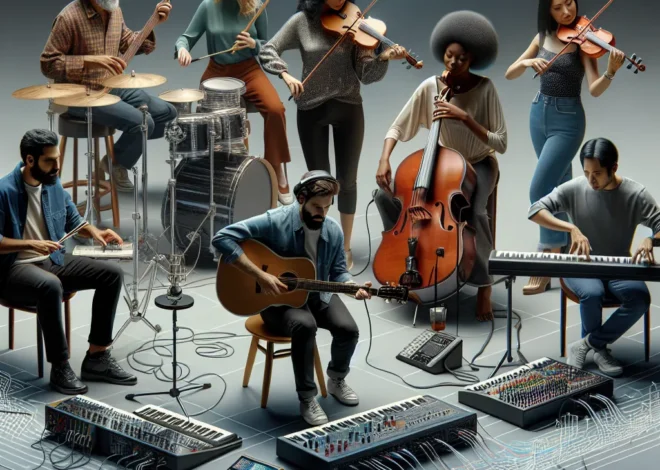
The Evolution of Bands: From Garage to Main Stage
The Birth of Garage Bands: A Look at the Early Days
The birth of garage bands in the mid-20th century marked a significant evolution in the music industry. Stemming from a do-it-yourself ethos, garage bands emerged as a vital part of the musical landscape. These early bands were characterized by their raw, unpolished sound, often practicing and performing in makeshift spaces such as garages, basements, and small local venues.
One of the defining features of these early garage bands was the accessibility of musical instruments and equipment. The affordability of guitars, drums, and amplifiers allowed young aspiring musicians to form bands without the need for formal training or expensive gear. This accessibility empowered a generation of music enthusiasts to express themselves musically and connect with audiences on a grassroots level.
Furthermore, the emergence of garage bands marked a shift in the dynamics of the music industry. These bands operated independently, often recording and distributing their music through small, local labels or by self-releasing albums. This DIY approach laid the groundwork for a new wave of musical creativity and paved the way for bands to explore a wide range of genres and styles.
As garage bands gained popularity, they became breeding grounds for innovation and experimentation, influencing the sound of mainstream music in significant ways. The rebellious and energetic spirit of these bands resonated with audiences, eventually propelling some garage bands from local obscurity to national and international stages.
In conclusion, the birth of garage bands represented a pivotal moment in music history, shaping the evolution of bands from the grassroots level to the main stage. The DIY ethos, accessibility of musical instruments, independent spirit, and cultural impact of garage bands continue to influence the music industry to this day.
The Rise of Local Legends: Transitioning to the Main Stage
As the music industry continues to evolve, the journey of bands from garage rehearsals to the main stage has been a captivating narrative. One of the remarkable aspects of this evolution is the rise of local legends and their transition to the main stage. Local legends are the backbone of the music scene, earning their stripes in small, intimate venues and building a loyal fan base within their communities.
These local legends often start their journey in humble beginnings, honing their craft in garages and small rehearsal spaces. Through their dedication and talent, they begin to attract a following, drawing in audiences with their electrifying performances and raw energy. As their notoriety grows, so does the demand for their music, propelling them from local heroes to regional icons.
The transition to the main stage is a pivotal moment in the evolution of bands. It represents the culmination of years of hard work, persistence, and a deep connection with their audience. Local legends bring a sense of authenticity and grassroots credibility to the main stage, infusing the music industry with a refreshing and genuine spirit.
Furthermore, the rise of local legends serves as a testament to the power of grassroots support and the significance of community in the music world. These bands often maintain strong ties to their local scenes, giving back to the very communities that helped nurture their talent.
In conclusion, the evolution of bands from local legends to the main stage exemplifies the enduring appeal of authentic, homegrown talent. Their journey underscores the profound impact of community support and the timeless allure of raw, passionate music.
Embracing the Digital Age: Evolution of Bands in the Internet Era
The evolution of bands from garage to main stage has been greatly influenced by the digital age. With the advent of the internet, bands have gained unprecedented access to global audiences and new avenues for promoting their music. The internet has revolutionized the way bands create, distribute, and promote their music, leading to a significant shift in the music industry.
One of the most notable changes brought about by the internet era is the democratization of music production. In the past, bands relied on expensive studio time to record their music. Today, affordable recording equipment and software have empowered bands to produce high-quality music from the comfort of their own homes. This has led to an explosion of diverse and independent music, as bands no longer need the backing of major record labels to produce professional-sounding tracks.
Furthermore, the internet has transformed how bands connect with their fan base. Social media platforms, streaming services, and websites have become essential tools for bands to engage with their audience, share their music, and promote upcoming shows. Bands can now interact directly with fans, gather instant feedback, and build a loyal following across the globe.
Moreover, the digital age has revolutionized the way bands distribute their music. With the rise of digital music platforms, such as Spotify, Apple Music, and Bandcamp, bands can easily reach a global audience without physical distribution barriers. This newfound accessibility has allowed niche and independent bands to thrive in the mainstream music landscape.
In conclusion, the evolution of bands in the internet era has reshaped the music industry, empowering bands to take control of their music production, distribution, and promotion. The digital age has opened up unprecedented opportunities for bands to reach global audiences, connect with fans, and build successful careers in music.
From Grassroots to Global: Bands’ Journey to International Success
One of the most fascinating aspects of the evolution of bands is their journey from grassroots beginnings to achieving international success. Many iconic bands have humble origins, often starting out in garage rehearsals or small local gigs. These bands dedicate years to honing their craft, building a loyal fan base, and gaining recognition within their local music scenes.
As these bands gain momentum and popularity, they often attract the attention of industry insiders such as talent scouts, music producers, and record labels. The transition from local success to international stardom is marked by significant milestones such as signing major record deals, embarking on world tours, and securing prominent slots at music festivals.
The internet and social media have played a pivotal role in facilitating bands’ journeys to international acclaim. Platforms like YouTube, Spotify, and social networking sites enable bands to reach global audiences with their music, building a dedicated following beyond their home countries.
Furthermore, collaborations with renowned artists, licensing their music for films or advertisements, and receiving critical acclaim from music journalists all contribute to a band’s elevation to international prominence.
In conclusion, the evolution of bands from local garage outfits to global sensations is a testament to their talent, perseverance, and the power of music to transcend geographical boundaries. It represents a journey of passion, creativity, and ambition that resonates with fans around the world.



